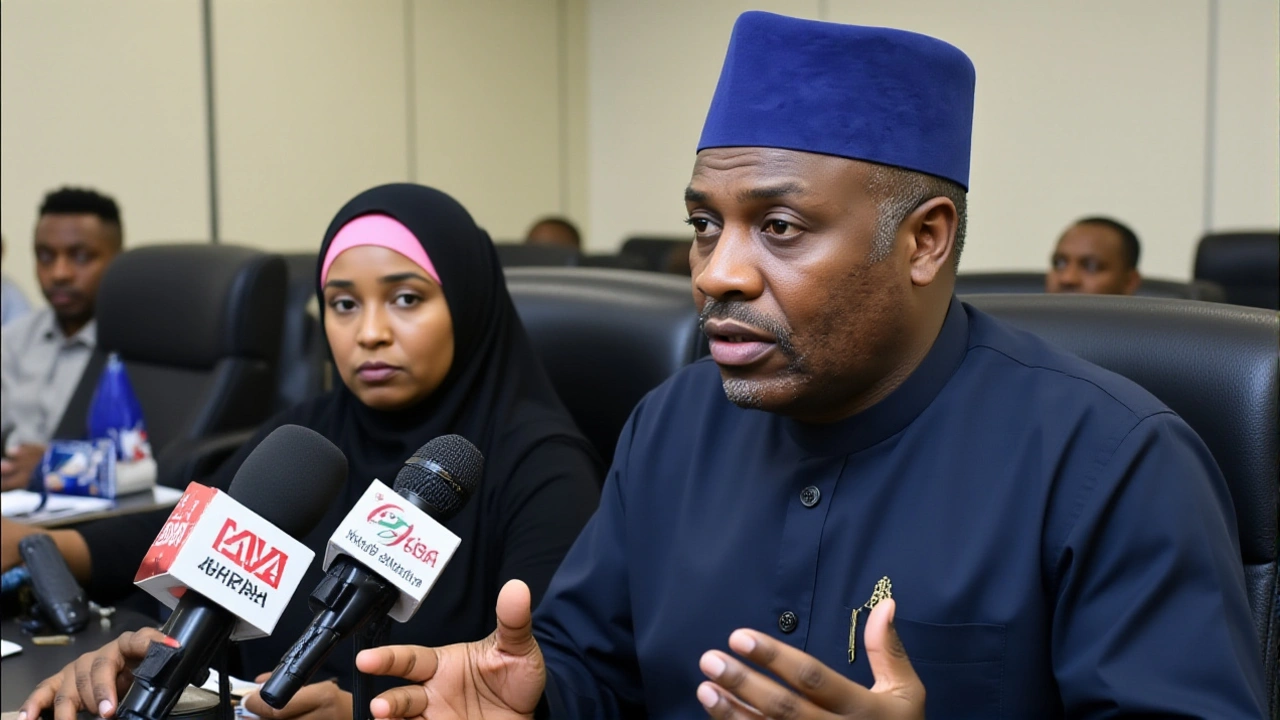Nigeria Universities: Current Trends and Key Issues
When talking about Nigeria universities, public and private higher‑education institutions that award degrees in Nigeria. Also known as Nigerian tertiary institutions, they shape the nation's workforce and research output. The admission body JAMB, Joint Admissions and Matriculation Board that conducts the UTME exam controls entry, while the Nigerian Ministry of Education, government department that sets policy for all education levels decides funding levels. Student voices organize through the Student Union, representative bodies that negotiate on campus issues. Together these entities create the ecosystem that we’ll unpack below.
How Funding, Policies, and Protests Interact
Nigeria universities depend on three main money streams: federal allocations, tuition fees, and research grants. When the Ministry of Education raises budget caps, universities can hire more staff and upgrade labs – a direct cause‑and‑effect link. Conversely, when funding stalls, staff strikes become common, and student unions step in to demand action. This creates a semantic triple: "University funding influences staff salary," and "Staff strikes trigger student protests." Recent months have seen protests over delayed salary payments and rising tuition, showing the triple "Policy change leads to protest, protest forces policy revision." The result is a cyclical push‑pull that shapes the academic calendar.
The admission process adds another layer. JAMB’s Unified Tertiary Matriculation Examination (UTME) scores determine eligibility for most programs. A higher cut‑off means fewer students compete for limited seats, which can ease overcrowding but also limit access for low‑income candidates. Universities therefore balance enrollment targets with social equity goals, creating the relationship "JAMB scores affect university enrollment numbers," and "Enrollment numbers impact campus resources." Reforms such as the recent shift to Computer‑Based Testing aim to make the process fairer and faster.
Beyond funding and admissions, research partnerships are gaining traction. Private firms now sponsor labs at federal universities, linking industry needs with student projects. This relationship "Industry sponsorship enhances university research capacity" drives job‑ready graduates and boosts university rankings. Meanwhile, digital learning platforms introduced during pandemic years remain in use, expanding reach to remote students and reducing pressure on physical classrooms.
Geographically, the country hosts a mix of flagship federal institutions – University of Lagos, University of Ibadan, Ahmadu Bello University – and specialized state or private colleges. Each brings its own strengths: coastal schools excel in marine studies, while northern campuses lead in agricultural research. The diversity creates a network where knowledge flows across regions, exemplified by the triple "University collaborations promote interdisciplinary research."
Policy shifts also affect the day‑to‑day life of students. Recent rulings on campus security, such as mandatory biometric ID for dorm access, aim to curb crime but raise privacy concerns. Student unions often negotiate the balance between safety and freedom, illustrating the link "Security measures influence student experience," and "Student feedback shapes security policy." These dynamics are reflected in news stories that cover everything from protest rallies to scholarship announcements.
All this context sets the stage for the collection of articles below. You’ll find detailed reports on admission reforms, coverage of recent campus protests, analyses of funding trends, and profiles of leading universities. Whether you’re a prospective student, a policy watcher, or just curious about higher education in Nigeria, the posts ahead give you practical insight and up‑to‑date information.
ASUU Calls Two‑Week Nationwide Strike as Government Talks Stumble
ASUU President Prof. Chris Piwuna announced a two‑week nationwide strike starting Oct 13, after the government’s 14‑day ultimatum expired, despite a N200 bn intervention plan.

